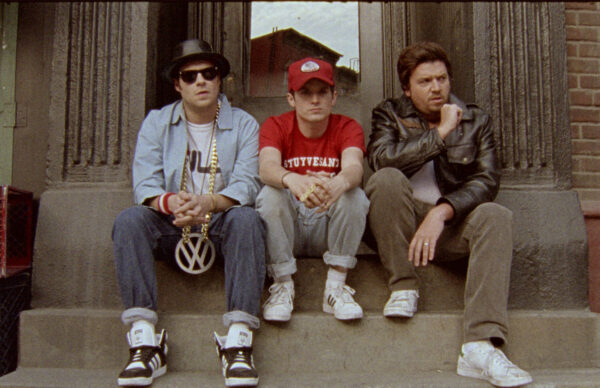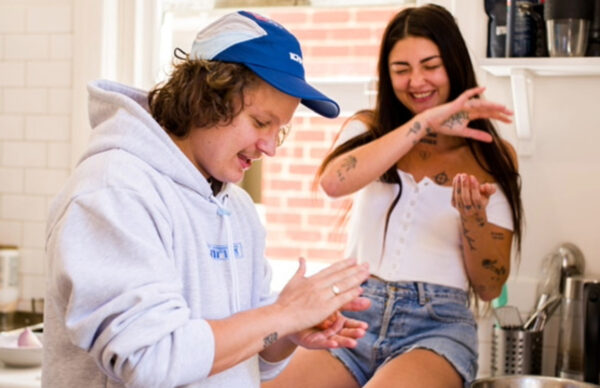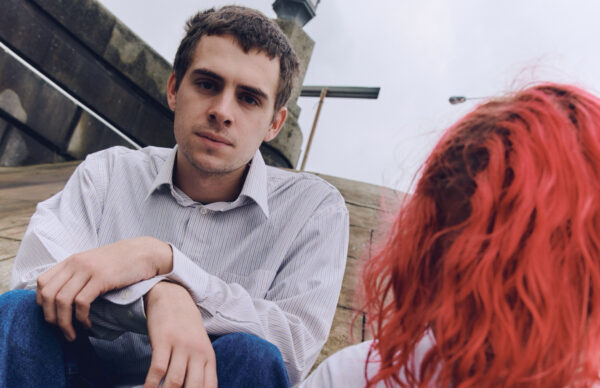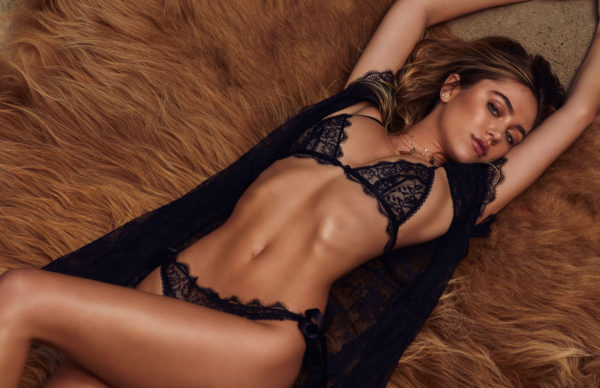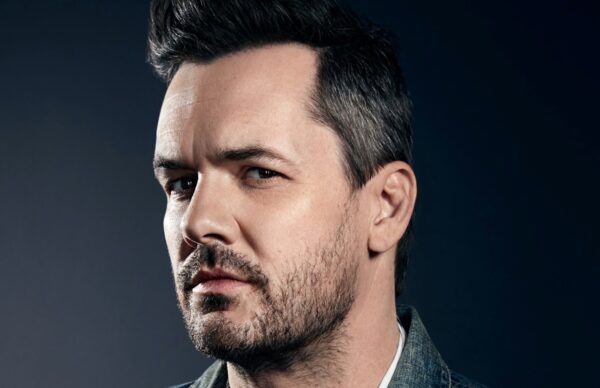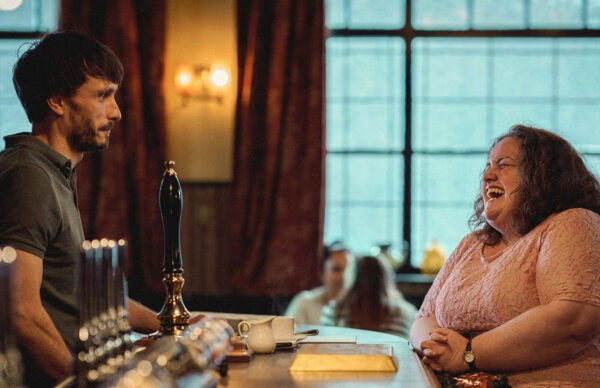What does it mean to be free?
Director & writer Noora Niasari explores this question in her feature-length debut ‘Shayda’. The film follows the titular Shayda (Zar Amir Ebrahimi) and her daughter Mona (Selina Zahednia) taking refuge in a women’s shelter over Nowruz (Persian New Year). Having fled her husband, Hossein, and filed for divorce, Shayda struggles to maintain normalcy for Mona. Small moments of dancing in the living room and sharing traditional Iranian candies are constantly dragged back down to earth by the uncertainty of their situation. As Shayda battles each new fight in front of her, a judge grants Hossein visitation rights, threatening the slight sense of safety Shayda has held onto so tightly with the fear that he’ll attempt to take Mona back to Iran.
For Niasari, the film is a deeply personal one that drew from her and her mother’s experience growing up in the suburbs of Melbourne during the 90’s. Asking her mum to write a memoir of their time living in a women’s shelter, she filled the pages with stories of joy, heartbreak, and the inertia of the everyday that makes life so special. The result is a piece of work that possesses the reflectiveness of an autobiography and the poeticism of a ballad. ‘Shayda’ is a film that touches on existential questions of womanhood, the beauty of Iranian cultural practices, and the vulnerability of immigrants in Australia. While this sounds like a heavy watch, Niasari imbues the film with an authenticity and love that will touch the most callous hearts.
‘Shayda’ has been turning heads from its production to release. In 2021, Cate Blanchett’s ‘Dirty Films’ came on board to produce the film and MIFF (Melbourne International Film Festival) as financiers. Shayda premiered in the World Dramatic Competition at the 2023 Sundance Film Festival, winning the Audience Award and Sony Pictures Classic, acquiring all media rights in North America, Latin America, Benelux, Eastern Europe, Portugal, the Middle East and Turkey.
It was a brisk Sydney afternoon when we sat down with Nisari and Osamah Sami, who plays the tumultuous Hossein. Over tea and coffee, we talked lengthily about everything ‘Shayda’. Have a read of our chat below.
https://www.youtube.com/watch?v=npwKunbjZNo
Firstly, congrats to the both of you on ‘Shayda’! How does it feel for it to be hitting Australian cinemas very soon?
NOORA: Very exciting; I’ve been looking forward to this moment all year, and I’m excited to share the film with all kinds of audiences in Australia. Because it is an Australian film, it’s a different kind of Australian film, and I hope that people embrace it like they have been all over the world at different film festivals I’ve been attending.
OSAMAH: Yeah, absolutely, I echo those words, and the fact that we get to play the film on our home ground finally, it’s exciting.

Before we dive into the film, I’m going to take it all the way back to the beginning. When did you both first realise you wanted to be storytellers?
OSAMAH: Separate from Shayda, of course, because my involvement with Shayda is as a cast member, but in terms of, yes, storytelling, I guess for me personally, since I was a little kid in Iran, it was a way to escape the war. My dad was away on the front line, so we’d do these little plays and read all sorts of different plays that were either written in Iranian, Farsi, or translations of Shakespeare’s work. We were just kids; we didn’t really understand the context of those plays, but it gave us an escape, and since then, I’ve been interested in reading, writing and storytelling.
NOORA: I also grew up with a lot of Persian poetry, and my mother would translate the lyrics of Iranian songs. The lyricism and the storytelling she encouraged me to embrace as a young child. But as a profession, in the final year of architecture school, I discovered filmmaking and that it was possible to be a director. I fell in love with documentaries first and foremost, giving voice to people’s stories that we wouldn’t regularly see on screen, and feeling a connection with familiar strangers. I always found that so exhilarating, and it flowed on from there. 13 years later, we made Shayda (laughs).

For Noora, the catalyst for the film was a memoir you asked your mum to write five years ago. Out of all the stories written, why was this the one you wanted to tell as your debut feature? You said once that you could have made 16 films out of everything she wrote. Why was this the one you picked for the film?
NOORA: Well, I had decided that I wanted to set it in the women’s shelter before I asked her to write the memoir and I asked her to detail as much as she could remember from the shelter. But for her, she had to track the before and after in order to piece together that time. She decided to start from her arranged marriage and go ten years after the shelter. So, it was just an incredible amount of material that could have been adapted. But my focus was always on the women’s shelter experience and shedding light on what it means to escape violence, especially life after the escape, and how a woman forges a new destiny for herself in a new country.

How much of your work with documentaries informed the structure and research for this film?
NOORA: Yeah, it’s a really interesting question. Having that document from my mum, she had also saved all of her legal documents from that time, like 25 to 30 years. She’d accumulated all these documents, and she put it in a box and kept it for some reason; she said for sentimental reasons, she couldn’t let go of it. And then, when I told her I wanted to make the film, she gave it to me as a resource. So, that was an incredible resource.
And for me, the most important thing is authenticity. And so especially when you’re making a period film, it’s like you want to have all of the minutiae and the texture of that time and how things were said, how things were portrayed, costumes, everything means something. So in terms of the documentary background, it’s like, I love mining the past to write a narrative. And I also had an incredible resource in real, Joyce (played by Leah Purcell), who was the manager of the shelter we lived in, and she’s like a godmother to me now. And I spent hours and hours on the phone with her as well. She would tell me her stories because she worked there for 25 to 30 years. So, some of her stories fed into the screenplay as well as our stories, and it was a natural amalgamation of our combined truths.
Speaking of memoirs, Osamah, you are no stranger to memoirs yourself. What was it about Shayda that felt true and authentic to you as someone who’s communicated their experience through a bunch of different mediums?
OSAMAH: So many things. The first thing I’ll tell you is when I was made aware of the script through Noora when she sent it to me, I read it in one go, and I was absolutely floored. So much so that I wrote Noora a nice long email. And when I say long, like twenty-odd pages long about the importance of the story and things that she knew. It was like I wrote a summary of the film (laughs)
NOORA: They were his responses, which was significant because I could see how much she understood all of the layers of the characters and the situation.
OSAMAH: Yeah. And when Nora was talking about authenticity before, that really struck a chord. The characters are real. They felt real. And it was a story I hadn’t seen on screen. We haven’t, and the treatment of a subject in such a delicate, beautiful, poetic, exquisite manner that gets your juices flowing as an artist or a storyteller or an actor, in my case, you just feel excited to be able to take part in a story like this. So, yeah, it comes down to authenticity because once something’s authentic, it’s real, then you can relate. I was relating to Mona’s pain. I was talking to you earlier about growing up during the war as a child. It’s very different, but it has that conflict of where’s my dad and where am I in this world? And I’ve got a foot here and a foot there and where I belong. And you’re so young, you don’t really understand, but you’re just absorbing and recording. Once you get older, you can hit rewind, pause and reflect. But as a kid, you don’t have those faculties. Yeah, it just struck me as so real and truthful. I was like, “Noora, get me on this film!” (laughs).

I don’t know if this is a spoiler (laughs) But one thing that struck me about your performance was the very last scene that your character is in. For most of the film, you don’t feel great about your character as an audience member. It’s complicated. But you give this look, and it’s so heartbreaking and raw. What informed you for that to be the last image you see of your character?
NOORA: We don’t know where he is (laughs).
Yeah, he could be anywhere (laughs).
OSAMAH: Well, like you said, it’s complicated. That’s a good word to use. It’s a complex relationship. It’s a difficult relationship. There are lots of misguided thoughts and attitudes. That scene that you’re referring to is guided by the script. What Noora has done that’s great is that there are no black-and-white characters. Everyone’s fighting a demon of some sort, or everyone has an issue, whether they are the women in the shelter or even Shayda herself. Where she comes to grapple with who she is and where she wants to go on her inner freedom. And Hossein is no different. He’s the film’s antagonist, of course, but I like that it wasn’t just painted as black and white. Despite the horrific actions and nature of what he’s done, that was one of the great, challenging things to do. I remember we did multiple takes, and you wanted something more and more. You don’t try to play the villain. Of course, that’s too easy. I wanted to play, in that specific scene, the father. I’m a dad. I’ve got girls. So what if this was happening to me as it is to my character? And I can’t see my daughter, or she has to see me in this particular situation. And, of course, it’s heartbreaking. You have to have a heart of double stone to not be.
Beautiful answer.
NOORA: Yeah, we navigated it well. It was very specific, yet just vague enough (laughs).
At the film’s heart is a pair of performances by Zar Amir-Ebrahimi and the excellent young Selina! Can you each talk about your different experiences working with the two of them?
NOORA: Oh, wow. Where do I start? Honestly, I’m so grateful for all of my cast. I had an incredible ensemble of people I spent over a year casting, especially the leads, Shayda and Mona, who were just a perfect match. They bonded as soon as they met. They were both incredibly easy to work with. I mean, Zar and know, we had our moments. She would challenge me, and I would challenge her. But that’s part of the process because we wanted the film to be as good as it can be. The creative collaboration was so rewarding. Every day, we’d discover something new. The way that she interpreted and embodied Shayda was beyond my expectations of what the character could be, the way that she communicated nonverbally in her silence. She was always so present. And that helped Selina so much because it was her first time being in a film; she was six. She’s a remarkable talent. I mean, she’s kind of a genius child. In her first audition, she cried without being prompted just because of the situation we gave her. She just had this emotional capacity. I knew there was so much potential in that, but I also needed to hold her hand figuratively through the scenes. We all worked together with an understanding that making Selina comfortable was a priority. But at the same time, conveying the depths of this mother-daughter bond. The lightness, the joy, the sorrow and her dilemma of being torn between her parents. That was the most challenging thing because all she knew about the film was that her parents were not together. And I didn’t want her to spend too much time with Osamah during the rehearsal period because I didn’t want them to get too close. It worked out in the first scene that they did together. She was friendly but didn’t have the connection she had with Zar. With Zar, It was like a mother-daughter bond, like inseparable, like friends, playful, everything.

So, you know, really developing those relationships in the rehearsal period allowed us to go deep during the shoot and kind of shortcut many things in terms of getting to the emotional places we needed to get to. They were both incredible to work with. Selina never complained. She was a consummate professional and always a joy. The actors always like, “Oh shit, I gotta do better, we can’t be worse than a six-year-old”(laughs). Even Leah Purcell said, “What’s happening?” (laughs).
They’re the heart of the film and carry it so beautifully. They’re forever bonded, they still FaceTime and love each other, and it’s beautiful.
OSAMAH: Yeah, that bond that you speak of is so crucial. From my end, it was essential to get a connection with both Zar and Selina, even if it wasn’t as lengthy a process as for Zar and Selina themselves. They’re not together in the film, but you need to believe they were once a family.
Selina’s so adorable, so lovable. My youngest daughter’s now nine. When we were filming, she would have been eight. It’s only a couple years difference. Someone like Selina forces an actor to be present because she’s not thinking about her lines or how I’m going to deliver a particular line, even if she’s like, okay, I’ve got to repeat these lines. But she’s so present and in the moment that she drags you to be present. And then Zar is so incredibly generous on set, even though she’s got a lot going on. She’s playing the lead. She’s got so many scenes to think about, an entire story arc. But when she’d be filming a scene, it would be all about that scene. And whilst we don’t have that many scenes together, I probably have more scenes with Selena yet, because we were able to spend some time together during rehearsals and talk about our relationship, our fictional relationship, and our history together. It’s just the joy as an actor, it’s the best when you rock up to set and you can trust the other actor and you feel that you have their trust as well. So much so that you can talk about the dark issues within a framework of trust. We do tackle heavy issues that are unavoidable in this film. It’s not your rom-com where you’re just happy-go-lucky all the time. In fact, it’s the other way around. But then, I sometimes burst into song between takes to lighten up the mood.
NOORA: He was so much fun.

For Noora, I am trying to decide what words to use precisely. Was there a sense of deja vu or surrealism to shooting this version of your life?
NOORA: Every day, there were triggering moments, and it was a testament to the actors and the realness and rawness of their work. It would always take me back, even though I’d done so much work in therapy. The script had so many fictional elements. It was always one step removed from our life. But because it was still emotionally true to what we went through, and because the actors were always bringing so much emotionality and authenticity and connecting to the characters in such a way that I probably cried every day on set, I can’t say I didn’t. It was hard to switch between being a triggered woman and suddenly feeling like a six-year-old and then returning to my adult self, directing actors and being a leader. It was such a psychological gymnastics for me to be on set. Everyone saw it. Everyone felt that it was a challenge for me.
I think I hid it well (laughs)

OSAMAH: What was great is that as actors, we were conscious that this is a true story, and we’re playing fictionalised versions of real people, real emotions. Sometimes, it’s hard to handle these emotions when these scenes are played before you. So we were aware of that. Noora was great. I mean, whilst dealing with all that, she still was generous enough to give us the freedom to I want to use the word play here because as actors, that’s what we do. We’re playing or being these characters, as tricky as that is. Because without the freedom to play, actors start going into themselves, or you begin reaching out. You become too theatrical, or you’re just not present with the other actor and really being in that scene because you’re afraid that this is causing some heartache externally. So it was navigating those lines. But, yeah, we got through it. But I admired Noora’s courage to tell that story because I could see it. When you had the three weeks at the shelter, that would have been full on and then you come out of the shelter, and you’ve got the scenes where you’ve seen the film, where there’s some challenging scenes. When we’re playing it, I think.
NOORA: it was hard for everybody, even for some of the crew
OSAMAH: To witness it play out. That’s quite raw.
NOORA: Yeah, it’s very raw. And I feel like I was able to hold space for the actors to give them the opportunity to interpret things because I’m not making a documentary. It’s fictional, and it’s a piece of cinema. And I wanted everyone, from the crew to the actors, to bring their interpretation of the material. And for me, working with actors is my favourite part of filmmaking. I feel like they’re magicians. I wonder how they switch these states so quickly. But they were just so generous and held space for me. It was beautiful; it was healing in the end, and I feel the catharsis in sharing the film with audiences.
And I hope Australian audiences turn out to see the film because it’s a different kind of film that they’re used to seeing from an Australian filmmaker. But at the same time, it’s a timely one, and it’s a universal one. And there’s also so much joy. The dance, Persian New Year, the colour, the food. The celebration of Persian culture and defiance. The celebration of life, of strong women. We need to see more of this. I hope people come out on October 5th and enjoy the film and tell their friends (laughs).

Thank you very much for your time.
Thanks to Niasari and Sami for taking the time to chat! You can catch ‘Shayda’ in cinemas today! Make sure to check this out and support Aussie films!
